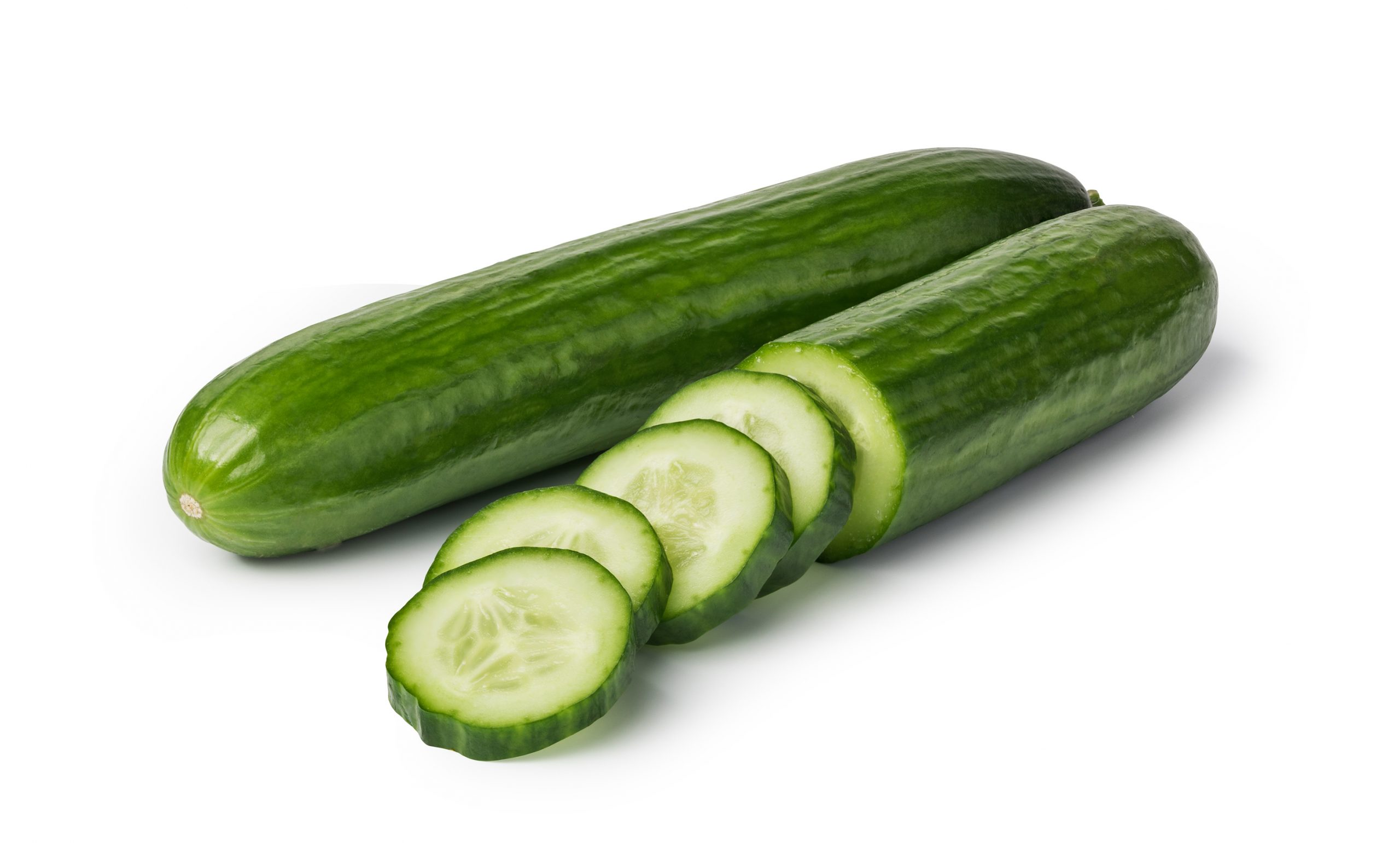Health Benefits of Cucumbers
What are the health benefits of cucumbers?
Cucumbers are not only a refreshing and low-calorie vegetable but also offer several health benefits due to their nutrient content and unique properties. Here are some key health benefits of cucumbers:
- Hydration: Cucumbers are made up of about 95% water, making them an excellent dehydration-fighting food. Eating cucumbers can help you stay hydrated, especially during hot weather or after exercise.
- Nutrient Rich: Despite their high water content, cucumbers are also rich in vitamins and minerals. They contain vitamin K, vitamin C, potassium, and various antioxidants, all of which are important for overall health.
- Antioxidant Properties: Cucumbers contain antioxidants, including beta-carotene, flavonoids, and tannins, which help protect the body from oxidative stress by free radicals and reduce the risk of chronic diseases.
- Digestive Health: The high water and fiber content in cucumbers can help promote healthy digestion and prevent constipation. Cucumbers also contain a compound called cucurbitacin, which may help reduce inflammation in the digestive tract.
- Weight Management: Cucumbers are low in calories but high in water and fiber, making them a filling and satisfying snack. Including cucumbers in your diet can help you feel full while consuming fewer calories, which may aid in weight management.
- Skin Health: Cucumbers are often used in skincare due to their hydrating and cooling properties. They can help soothe sunburn, reduce puffiness around the eyes, and improve overall skin texture and appearance.
- Heart Health: The potassium content in cucumbers is beneficial for heart health. Potassium helps regulate blood pressure and may reduce the risk of stroke and heart disease.
- Bone Health: Vitamin K, found in cucumbers, is important for bone health and may help reduce the risk of fractures and osteoporosis.
- Blood Sugar Control: Some studies suggest that cucumbers may help regulate blood sugar levels and reduce the risk of diabetes. However, more research is needed in this area.
- Fresh Breath: Cucumbers contain phytochemicals that can help kill the bacteria in your mouth that cause bad breath. Eating cucumber slices may help freshen your breath.
Incorporating cucumbers into your diet can be a simple and delicious way to enjoy these health benefits. They can be eaten raw, added to salads, or used as a refreshing addition to water or smoothies.
What are the health risks of cucumbers?
Cucumbers are generally safe to eat and are well-tolerated by most people. However, there are a few potential risks associated with their consumption, particularly in certain situations or when consumed in large quantities. Here are some potential health risks of cucumbers:
- Pesticide Residues: Conventionally grown cucumbers may contain pesticide residues, which can pose a health risk if consumed in large amounts over time. Washing cucumbers thoroughly and choosing organic varieties can help reduce pesticide exposure.
- Digestive Issues: Some people may experience digestive issues such as bloating, gas, or diarrhea after consuming cucumbers, especially if they are sensitive to certain compounds found in cucumbers or if they consume them in large quantities.
- Allergic Reactions: While rare, some individuals may be allergic to cucumbers or develop an allergic reaction to cucumber skin. Symptoms of a cucumber allergy may include itching, swelling, hives, or difficulty breathing.
- Cucumber Toxicity: In rare cases, cucumbers can contain cucurbitacins, bitter-tasting and potentially toxic compounds that can cause digestive upset and other symptoms. Cucurbitacin poisoning is rare and usually occurs in cucumbers that have not been properly cultivated or stored.
- Gastrointestinal Irritation: Some people may experience gastrointestinal irritation or discomfort if they consume cucumbers that are not fresh or have been improperly stored, leading to an increased risk of foodborne illness.
- Blood Sugar Levels: While cucumbers are generally low in carbohydrates and have a low glycemic index, consuming large quantities of cucumbers or cucumber juice may cause a slight increase in blood sugar levels in some individuals, particularly those with diabetes.
- Interaction with Medications: Cucumbers may interact with certain medications, particularly drugs that affect blood clotting or blood pressure. If you are taking medications, it’s important to consult with your healthcare provider before consuming large amounts of cucumbers or cucumber products.
Overall, cucumbers are a nutritious and hydrating vegetable that can be enjoyed as part of a balanced diet. However, it’s important to consume them in moderation and be aware of potential risks, especially if you have specific allergies or health conditions. If you have any concerns about consuming cucumbers, consult with a healthcare provider.




